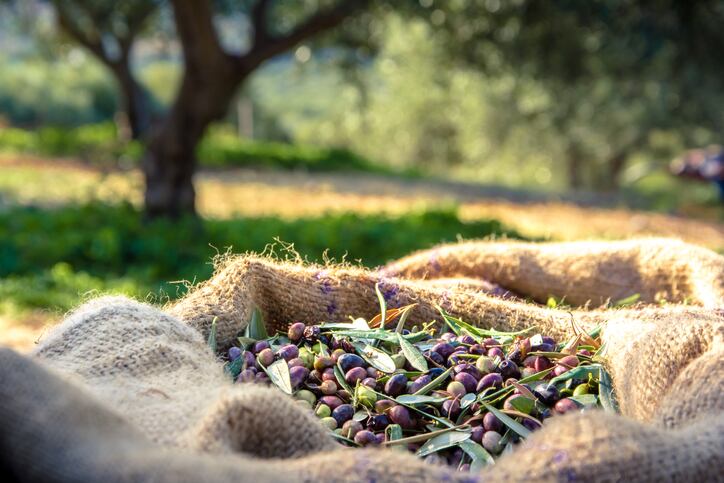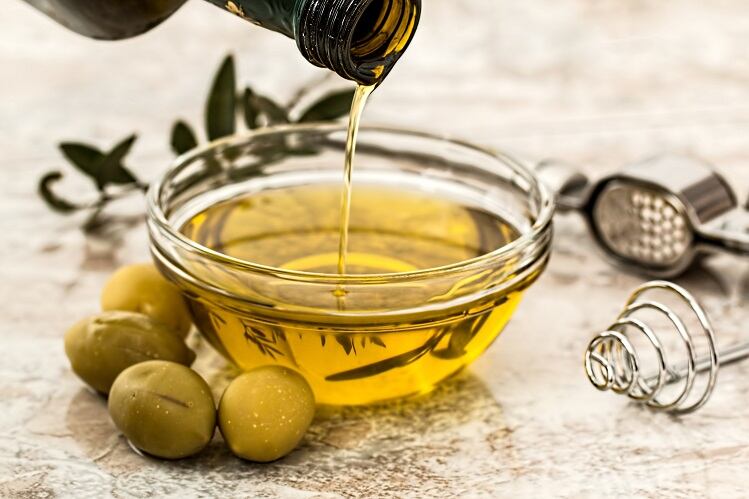Quality, not safety issue
The report notes that few health issues have been associated with olive oil adulteration, which means that food safety and quality authorities in many countries have higher priorities. Nevertheless, the bulletin also comments that consumers who buy Extra Virgin Olive Oil (EVOO) products that are not what they are labeled to be will not derive the health benefits that are connected to oils that meet this quality standard.
BAPP is a joint effort of the American Botanical Council, the American Herbal Pharmacopoeia and the National Center for Natural Products Research at the University of Mississippi. The bulletin was written by Rodney J. Mailer, PhD, an expert in vegetable oil production and analysis and former head of the New South Wales Department of Primary Industries’ edible oil research program in Wagga Wagga, NSW, Australia, and Stefan Gafner, PhD, ABC’s chief science officer and the technical director of BAPP.
Oil from the fruit of the olive tree (Olea europea) is one of the most popular vegetable oils for culinary use. In dietary supplements, olive oil is used as a carrier oil, or excipient, for fat-soluble vitamins, saw palmetto berry extract, and as a dietary ingredient alone or in combination with fish, flax (Linum usitatissimum), borage (Borago officinalis), and other oils to supply balanced amounts of fatty acids to the human diet. Olive oil is also a popular ingredient in topical formulations such as lotions, creams, ointments, and lip balms.
EU is by far biggest producer
The European Union (primarily Spain, Italy, Greece and Portugal) is by far the biggest producer of olive oil, with more than 2,200 metric tons produced in 2018/2019, according to the bulletin. Other major producers include counties in the Middle East and Northern Africa, Australia, Chile, Argentina and the United States. Global production of olive oil depends on weather conditions but has averaged more than three million metric tons for the past two years.
The bulletin notes that EVOO is both a descriptor of the product and a quality standard. EVOO must be from fruit that is harvested and processed quickly to avoid breakdown fractions that can come from damaged fruit or fruit that has been held too long before processing. EVOO must have less than 0.8% by weight of free fatty acids. EVOO also must meet organoleptic standards for freshness, taste, ‘fruitiness,’ and color.
These days most oils processed to the EVOO standard are generally made from fruit that is mechanically harvested with overhead machines. These harvesters gently rake the trees with mechanical fingers and the fruit falls to conveyor belts below, which means the olives neither touch the ground nor suffer any crushing damage from a fall.
To make EVOO, the olives are ground to a paste and then gently folded to help separate the oil from the fruit pomace. The whole is then centrifuged, and the resulting oil is allowed to rest to help the remaining water and suspended solids to separate out naturally. Some EVOO producers may simply filter the oil at once instead of allowing it to settle.
Other, cheaper oils are most common adulterant
The most common adulterant of EVOO are other vegetable oils such as soybean or rapeseed oil. Degraded olive oil or additional oil that has been extracted from the olive pomace via solvents after the initial processing steps is also used to cut the final product, the bulletin notes. Chlorophyll stabilized with copper and beta carotene are common adulterants used to color oils that have been refined or which have started to become rancid and whose color has changed as a result.
The bulletin notes that olive oil is the world’s most frequently adulterated foodstuff. While EVOO represents a tiny fraction of the world’s overall yearly production tonnage of vegetable oils, it accounts for a much higher fraction by volume, providing ample incentive for adulteration.
Olive oil adulteration seems to be endemic in the market. In one widely reported study conducted in 2010 by the University of California Davis, 69% of imported oils and 10% of California oils failed to meet the EVOO sensory specs. Other media reports and enforcement actions have shown products sold as EVOO to misrepresent the country of origin and mislabel lower quality olive oils as EVOO.
Health problems rare, outside of one lethal episode
Olive oil adulteration has generally not presented health concerns, the report notes. But in one case in 1981 in Spain almost 700 people were killed and as many as 25,000 were injured by what came to be called ‘toxic oil syndrome.’ The issue arose when rapeseed oil to which aniline, a coal tar derivative, had been added to make it suitable for use as an industrial lubricant was instead sold as olive oil. In addition, the bulletin notes that there may be long term health effects associated with the consumption of rancid oils but that this has not been studied in detail.
The bulletin lists 15 analytical methods that can be used to detect different aspects of EVOO adulteration. But it says that not enough testing is being done by companies or regulators in the market to act as an effective brake on corruption.
More testing needed to assure quality
“The adulteration of olive oil, particularly EVOO, is prolific because the financial gains are large and the availability of the highest grades low. Because testing is sporadic and expensive, the chance of being caught is relatively remote and the potential consequences not severe under the law of most countries,” the report notes.
“Despite this, consumers continue to buy olive oil for the perceived and documented nutritional benefits and for the sensory qualities of freshness and fruitiness. Clearly, a more determined global effort from authorities is required to overcome the corrupt practices. More testing of products, particularly from government facilities, is warranted to ensure the oils meet the expectations expressed on the label,” the bulletin added.
Tree to table positioning adds certainty
Rachel Kreider, head of business development in North America for the Australian olive oil brand Boundary Bend Wellness said more needs to be done to ensure that quality specifications are met. There are some certifications available that can be of help, she said.
“Looking for EVOO with third party certification is a great way to assure that you are getting real EVOO. Boundary Bend Wellness is petitioning the FDA to ensure that all imported EVOO must meet the California standard for EVOO in order to further improve the industry through mandatory testing,” Kreider said.
“Being a tree to table company, Boundary Bend Wellness has control over our products from every step of the way. Our oil never changes hands, we plant the trees, we nourish the trees, we harvest, we make the oil, we bottle the oil and we market the oil. A lot of EVOO companies cannot say that they have the same level of control,” she added.
Full report
To read the full BAPP report, click here.


